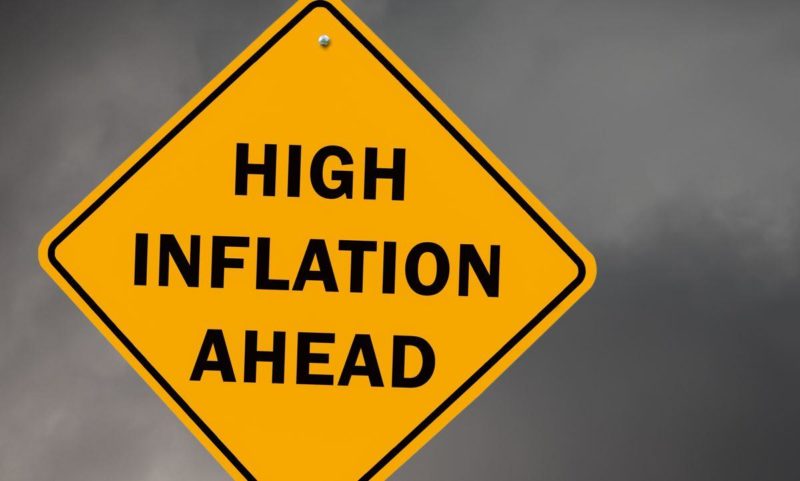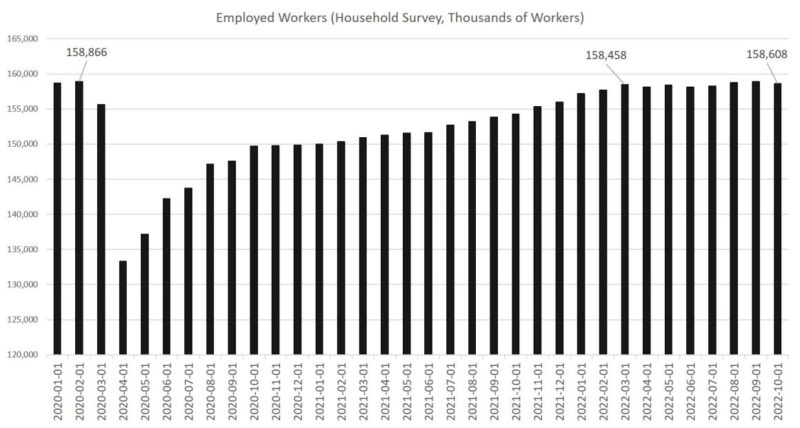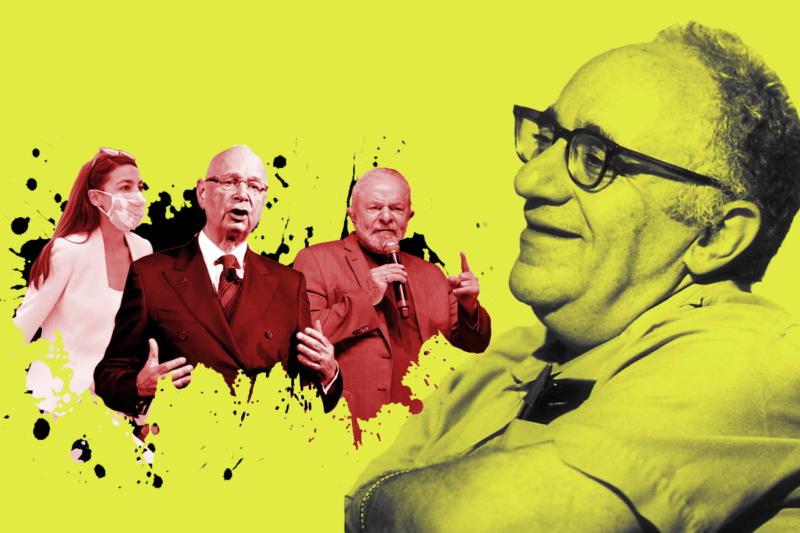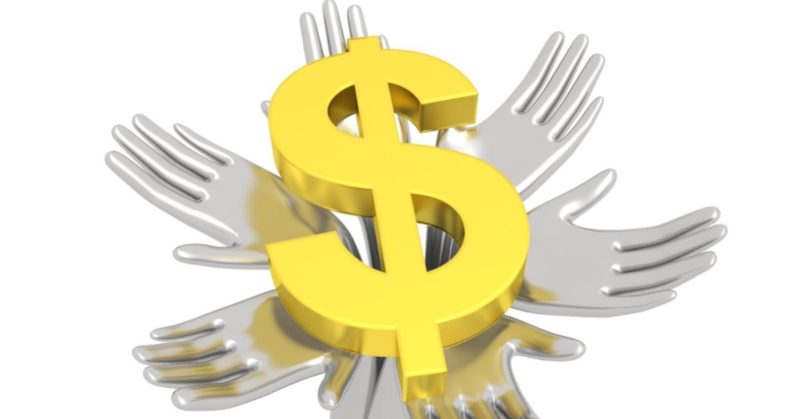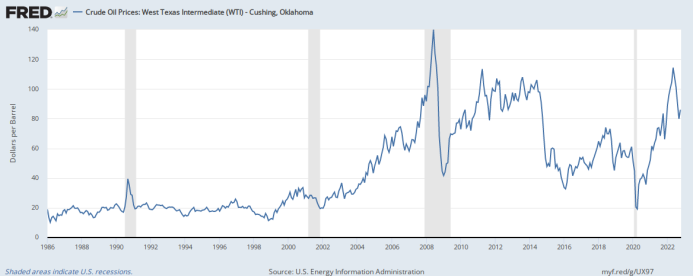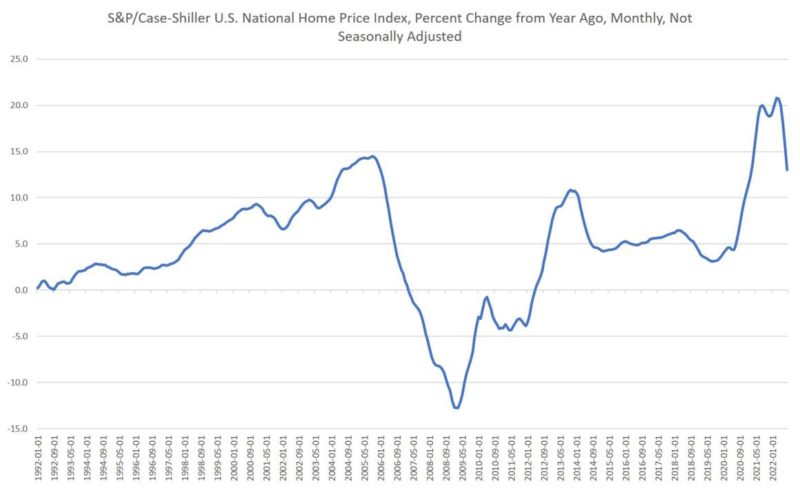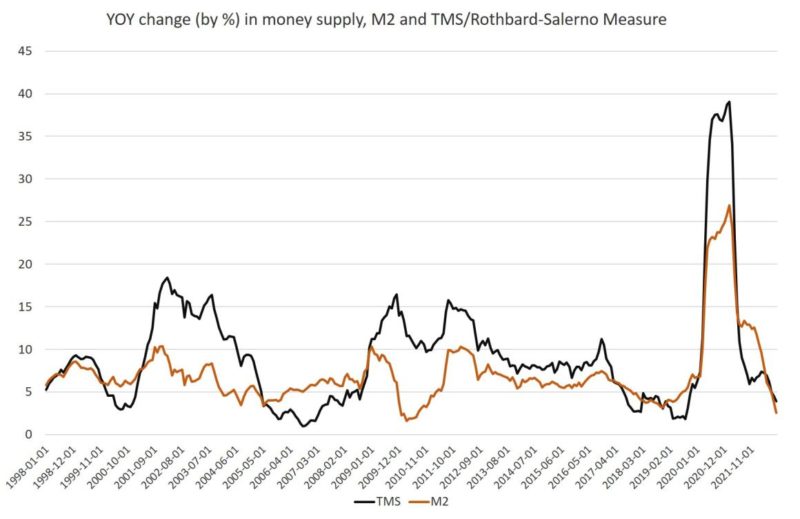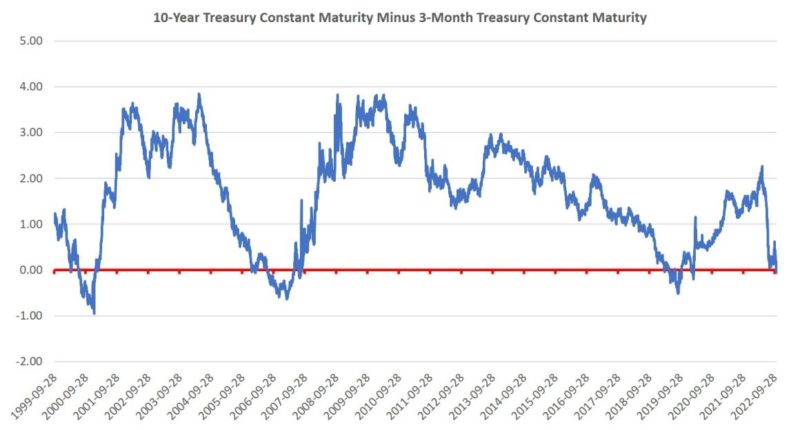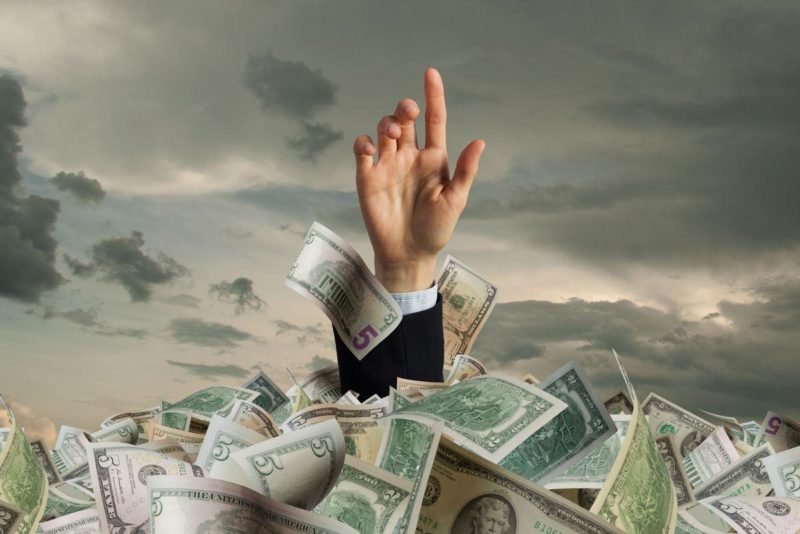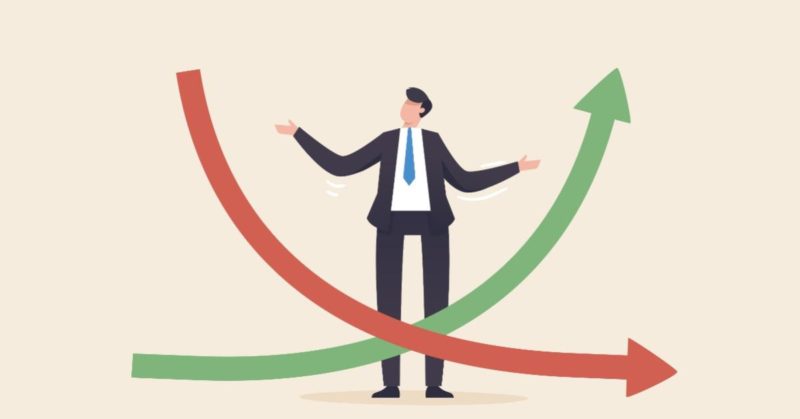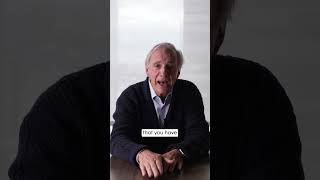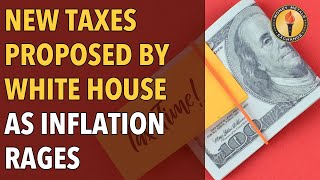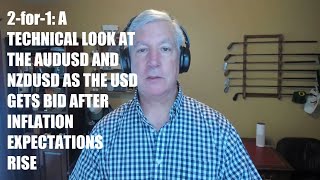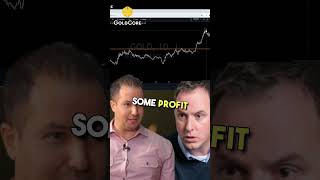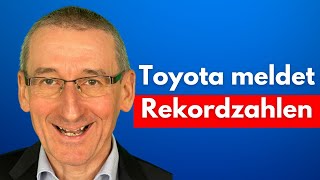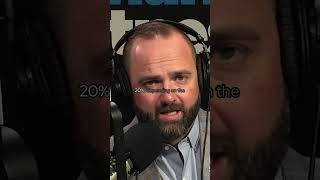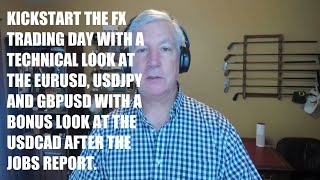Category Archive: 6b.) Mises.org
Decentralized Revolution #92—Per Bylund, author of How to Think About the Economy
Per Bylund (Senior Fellow at the Mises Institute) discusses his new book How to Think About the Economy, which is perhaps the best concise introduction to the economic thought of Ludwig von Mises and the Austrian School.
Read More »
Read More »
Today’s Inflation Surge Should Discredit Modern Monetary Theory Forever
It’s been a rough year for advocates of Modern Monetary Theory (MMT). After nearly two years with all the budget deficits and money printing MMTers could have wanted, the doctrine’s popularity seems to have faded now that we’re well passed the honeymoon phase.
Read More »
Read More »
The Number of Employed Workers Fell in October and Price Inflation Continues to Outpace Wages
In another sign of weakness for the job market, the total number of employed persons in the United States fell, month over month, in October. That's the third time in the last seven months this total has fallen, dropping to approximately 158 million.
Read More »
Read More »
Are Robots and AI Really Going to Displace All Workers? Probably Not
Among the components of the World Economic Forum’s Great Reset are a drastically reduced population and the replacement of human labor with robots and artificial intelligence (AI). The question immediately comes to mind: can robots and AI really make all the stuff for the elites after they have gotten rid of the people?
Read More »
Read More »
Multinational Agrichemical Corporations and the Great Food Transformation
In July 2022, the Canadian government announced its intention to reduce “emissions from the application of fertilizers by 30 percent from 2020 levels by 2030.” In the previous month, the government of the Netherlands publicly stated that it would implement measures designed to lower “nitrogen pollution some areas by up to 70 percent by 2030,” in order to meet the stipulations of the European “Green Deal,” which aims to “make the EU’s climate,...
Read More »
Read More »
Private versus Government Health Insurance: They Are Not the Same
Insurance is a market institution—i.e., it emerged through voluntary exchange aiming at satisfying the needs of the parties involved. Private health insurance should not be mistaken for public health insurance, which constitutes an element of a state’s social policy. They differ to such a great extent that one can even claim that the latter is a contradiction of the former. This essay will show the most notable differences between them.
Read More »
Read More »
Murray Rothbard versus the Progressives
There has been a radical change in the social and political landscape in this country, and any person who desires the victory of liberty and the defeat of Leviathan must adjust his strategy accordingly. New times require a rethinking of old and possibly obsolete strategies.
Read More »
Read More »
Can the Dollar Once Again Be Anchored by Gold? One Congressman Believes It Can
On October 7, 2022, US congressman Alex Mooney (a Republican from West Virginia) introduced a bill (the Gold Standard Restoration Act, H.R. 9157) that stipulates that the US dollar must be backed by physical gold owned by the US Treasury. The initiative clearly indicates that the increasingly inflationary US dollar is triggering efforts to get better money.
Read More »
Read More »
About That Nobel: Deconstructing Banking Theories of Diamond and Dybvig
Since the awarding of the Nobel Prize in economics to Ben S. Bernanke, Douglas W. Diamond, and Philip H. Dybvig, most of the media interest has, understandably, concentrated on Bernanke. Mark Thornton wrote a scathing takedown of bailout Ben, while Tyler Cowen inexplicably praised him to the skies (Cowen at least provides a good overview of some of Bernanke’s contributions, such as they are).
Read More »
Read More »
Black Hole or Shock Absorber: How Does a Free-Market Economy Respond to Crises?
Mainstream economists view the economy as fickle, unstable, and always in danger of utter collapse. They see the outlook as very bleak if not for the enormous existing superstructure of government intervention, including constant stimulus of “aggregate demand.”
Read More »
Read More »
Without Easy Money from the Fed, Home Prices Will Keep Falling
Home price growth of the sort we’ve seen in recent years simply cannot be sustained without a continued commitment to easy money from the central bank, and it shows. Home prices continued to slide in August as the economy cooled, and as the Fed hit the Pause button on quantitative easing while allowing interest rates to rise.
Read More »
Read More »
Latest Recession Alarm: Money-Supply Growth Fell in September to a 37-Month Low
Money supply growth fell again in September, dropping to a 37-month low. August's drop continues a steep downward trend from the unprecedented highs experienced during much of the past two years. During the thirteen months between April 2020 and April 2021, money supply growth in the United States often climbed above 35 percent year over year, well above even the "high" levels experienced from 2009 to 2013.
Read More »
Read More »
This Is Why the Yield Curve Just Inverted, Signaling a Coming Recession
In recent decades, every instance in which the economy contracted two quarters in a row has coincided with a recession. Nonetheless, the Biden Administration and the leadership at the Federal Reserve insist there is no recession now, nor is one even in the works.
Read More »
Read More »
Honest Money in Dishonest Hands
For those who would find relief knowing the Bible sanctions a market-derived medium of exchange, Gary North’s Honest Money will come as a godsend (no pun intended). Even for those reprobates who forswear a religious worldview, his book will provide a solid grounding in monetary theory and history.
Read More »
Read More »
Are Seasonally Adjusted Economic Data Useful?
It is not possible to establish the conditions of the economy by just inspecting the data as a whole, according to many economists. What is required, instead, is to break the data into its key components, which supposedly will enable economists to identify the true state of the economy.
Read More »
Read More »
Myth versus Ideology: Why Free Market Thinking Is Nonideological
I’ll begin with a provocative thesis: socialism is ideological and free market thinking, while involving myth, is nonideological. I will show why socialism is ideological and why free market thinking involves myth but is nonideological by defining the terms myth and ideology and distinguishing them from each other.
Read More »
Read More »
Can We Have Scarcity but Reject the “Scarcity Mindset?” in a Word, No
Since I am an economist and my school year is not too far along, my classroom discussion of how all of economics traces back to the fact of scarcity (the combination of limited resources, which implies a limited ability to produce, along with wants that always exceed the amount that can be produced) facing everyone was quite recent.
Read More »
Read More »
The Recession in the Productive Sector Is Here
Governments and central banks have become the lender of first resort instead of the last resort, and this is immensely dangerous. Global debt soars, inflation creeps in, and many of the so-called supply chain disruptions are the result of zombification after years of subsidizing low productivity and penalizing high productivity with increased taxes.
Read More »
Read More »
“Spend Now, and Deal with the Consequences Later” Is the Worst Policy
Quantitative easing was designed as a tool to provide time for governments to implement structural reforms, boost growth, and strengthen the economy. However, it has become a tool to increase the size of government and take increasingly riskier levels of debt.
Read More »
Read More »
Federal Reserve Tampering with Interest Rates Distorts the Shape of the Yield Curve
For many commentators, a change in the shape of the differential between the long-term interest rate and the short-term interest rate—i.e., the yield spread provides an indication of the likely direction of the economy in the months ahead. Thus, an increase in the yield spread raises the likelihood of a possible strengthening in economic activity in the months to come.
Read More »
Read More »










